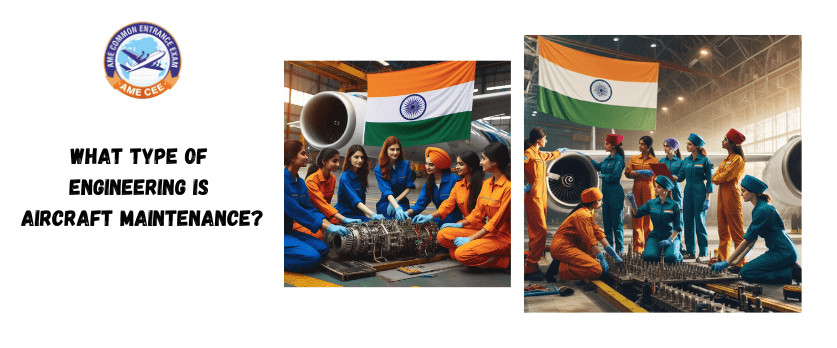Aircraft maintenance is a crucial aspect of aviation operations, ensuring the safety, reliability, and airworthiness of aircraft throughout their operational lifespan. While aircraft maintenance is often associated with mechanical tasks and troubleshooting, it encompasses various engineering disciplines that contribute to the maintenance, repair, and overhaul (MRO) of aircraft. This article delves into the different engineering aspects involved in aircraft maintenance, highlighting the interdisciplinary nature of this critical aviation function.
1. Mechanical Engineering
Mechanical engineering plays a central role in aircraft maintenance, encompassing tasks related to the inspection, repair, and replacement of mechanical components.
Maintenance engineers employ principles of mechanics, materials science, and thermodynamics to analyze and address mechanical issues in aircraft systems, including airframes, engines, landing gear, and control surfaces.
Mechanical engineers design and implement maintenance procedures, develop repair solutions, and optimize component performance to ensure the structural integrity and operational efficiency of aircraft.
2. Aerospace Engineering
Aerospace engineering focuses on the design, development, and maintenance of aircraft and spacecraft systems, making it inherently relevant to aircraft maintenance.
Maintenance engineers with a background in aerospace engineering leverage their understanding of aerodynamics, flight mechanics, and propulsion systems to diagnose and resolve complex aircraft issues.
Aerospace engineers contribute to the development of maintenance programs, structural modifications, and performance enhancements aimed at improving aircraft reliability, safety, and fuel efficiency.
3. Avionics Engineering
Avionics engineering deals with the design, integration, and maintenance of electronic systems and instrumentation onboard aircraft.
Avionics maintenance engineers specialize in troubleshooting and repairing avionic systems, such as communication, navigation, and flight control systems, using knowledge of electrical engineering, digital electronics, and signal processing.
Avionics engineers ensure the functionality and compliance of avionic systems with regulatory standards, such as those outlined by the Director General Civil Of Aviation (DGCA) or European Aviation Safety Agency (EASA). About AME EASA and AME DGCA for further details click the hyperlink.
4. Structural Engineering
Structural engineering focuses on the analysis and design of aircraft structures to withstand aerodynamic forces, environmental conditions, and operational loads.
Structural maintenance engineers assess the structural integrity of airframes, wings, fuselage, and other components using principles of stress analysis, fatigue testing, and fracture mechanics.
Structural engineers develop repair schemes, conduct non-destructive testing (NDT), and perform structural modifications to maintain aircraft airworthiness and extend service life.
5. Systems Engineering
Systems engineering integrates various engineering disciplines to manage complex systems, including aircraft and their subsystems, throughout their lifecycle.
Maintenance engineers with a systems engineering background employ a holistic approach to aircraft maintenance, considering interactions between mechanical, electrical, and software components.
Systems engineers develop maintenance strategies, reliability-centered maintenance (RCM) programs, and predictive maintenance techniques to optimize aircraft availability, performance, and safety.
Conclusion
Aircraft maintenance encompasses a diverse range of engineering disciplines, each contributing unique expertise and skills to ensure the continued airworthiness and operational reliability of aircraft. From mechanical and aerospace engineering to avionics, structural, and systems engineering, the multidisciplinary nature of aircraft maintenance underscores its importance in sustaining the safety and efficiency of aviation operations worldwide. By leveraging engineering principles and innovative solutions, maintenance engineers play a vital role in upholding the highest standards of safety and reliability in the aviation industry.
To become an aircraft maintenance engineer you may could join AME engineering through AME COMMON ENTRANCE EXAM (AME CEE) this examination you may join AME engineering approved by DGCA, EASA or UGC.


